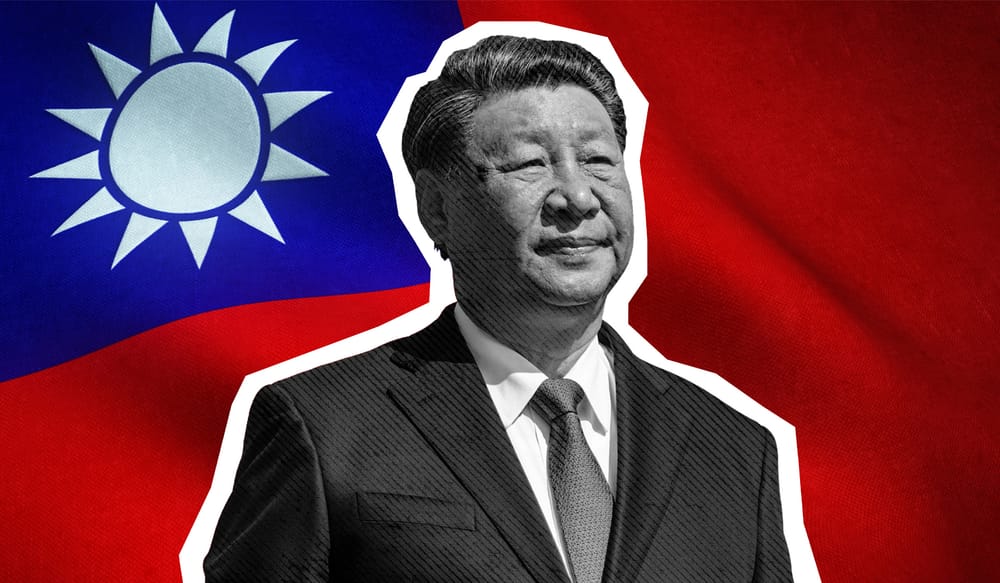I have been observing the events in Hong Kong quite silently for a while, expecting them to die down with time. But it seems that the tensions are going to last for a while longer, as the protesters appear to be emboldened by what they may think are their successes - mainly the withdrawal of the controversial extradition bill.
In reality, what might look like an accomplishment of the opponents of Beijing's encroachment on the city, can actually be the beginning of the end of the wealthy enclave.
Competitive disadvantage
Ever since the British took over Hong Kong in the aftermath of the First Opium War in 1842, its position and wealth have rested on it being the gateway to the Middle Kingdom and its highly desirable goods.
The world came to Hong Kong not because of Hong Kong but because of China.
Unfortunately, this critical strength has now become a deadly weakness.
For over a century it has been China's link to the rest of the planet - in most recent history allowing it to trade freely with other countries before PRC joined the WTO in 2001. Upon its return to the motherland, in 1997, it handled half of Chinese international trade. In the same year its GDP - a city of 6.5 million at the time - was a whopping 20% of that of all of China (with a population of 1200 million).
Those days, however, are gone. Today it is no longer the trade nexus it used to be, with its national share dropping to about 12% and heading into single digits. Mere 15 years ago, the port of Hong Kong was the busiest in the world, competing head to head with Singapore.
Now not only does it handle almost 10% fewer TEU than in 2004 (and nearly 20% fewer than in its peak in 2011) - but nearly 70% less than Singapore and has already slid from the top spot to no. 5 globally, overtaken by Shanghai, Ningbo and even by neighboring port of Shenzhen - while closely challenged by another nearby harbor in Guangzhou (which is set to top it this year) with Qingdao and Korean Busan following closely behind.
You can see a similar decline in the financial markets, where Hong Kong' Stock Exchange relative position has shrunk from a market capitalization twice the size of all of China's two decades ago, to just a half today. Shanghai has already stolen its crown of the largest Chinese stock market by capitalization and Shenzhen is in hot pursuit, reaching $2.5 trillion vs. Hong Kong's $4 trillion at the end of 2018. In the past 22 years its share of national GDP has plunged in the vicinity of 3% and is declining further as the rest of the country continues to grow.
Hong Kong is turning into just one of many Chinese cities. Everything that made it unique and valuable is very nearly gone - and the protests will only accelerate this erosion.
The price of freedom
Just as the rest of China is discovering and enjoying its newfound prosperity, disgruntled Hongkongers are parading their complete disregard for it. Born and raised in a world-class city (notwithstanding housing issues), they appear to be taking their position for granted.
The sobering reality is, however, that through what many of them surely perceive as defense of crucial liberties they are likely sacrificing their future - which depends nearly entirely on Beijing, whether they accept it or not. Freedoms bestowed upon them by departing Britain are going to disappear regardless of what they do, as China is ultimately going to take over governance entirely by 2047.
Understanding that this was always going to happen the question they should be asking themselves is not how to keep Beijing out but how to deal with it to retain Hong Kong's prime status in unified China.
Alas, despite the luxury of knowing what is going to happen 50 years in advance - a rare political gift - masses of the city's inhabitants have chosen to fight it (against all odds), rather than simply adjust to it (especially as they started in a very privileged position).
With the latest wave of violent discontent the notion that Hong Kong may play a significant part in Chinese future could very well be out of the question. Given how widespread the protests have been, Beijing has little reassurance that the city can be entrusted any major role in the country.
The center of gravity in trade and finance has already moved to Shanghai.
It's no longer a question of whether Hong Kong remains the country's bridge to the world because it isn't one anymore - or at least it isn't the only or the main one. The question now is whether it gets overtaken by second or third tier cities, which are going to enjoy far more generosity from Beijing than it will.
Many are eagerly celebrating the supposed achievements of the public revolt, with the extradition law now declared dead. Some are even making more demands.
The paradoxical reality is, however, that, as long as Beijing is resisting, it means that it still sees value in Hong Kong worth fighting for. But when it concedes a defeat - which is cheered as a win by its opponents - it is an ominous sign for the city's future.
If the CCP leaders give up the fight to control Hong Kong, the city folk may enjoy more liberties - but at the expense of business and investment, which are going to be directed elsewhere.
Beijing doesn't have to use force to subdue the city - all it has to do is tighten the screws elsewhere, restricting Hong Kong's economic potential and minimizing its political influence, to relegate it from the country's premier league.
At the same time, any serious instability and unpredictability are going to scare foreign business away. Companies dealing with China are going to move to locations preferred by the leaders in Beijing.
In the meantime, major organizations looking for a regional safe haven to conduct their operations around Asia from are going to look to other jurisdictions - with Singapore being the most attractive destination, offering largely the same benefits as Hong Kong - coupled with stability its sovereignty guarantees.
What will "freedom" mean then, if once great career and business opportunities disappear? When perspectives become bleak and getting a good job is going to require venturing to the mainland - or abroad? What's the use of your civil liberties when you're no longer free to live a life you could have lived in the past?
That's the Hong Kong paradox. Legal freedoms do not necessarily translate into real freedom. But before the city's rambunctious youth realize that, it will be too late to change course.
In fact, it already is.









